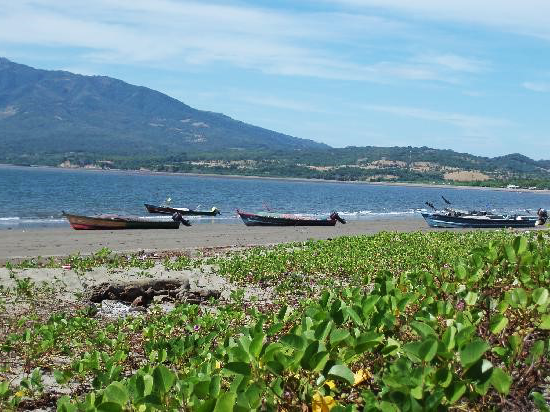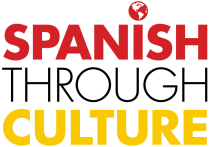
A photo of where Edward is from
Interviewer: Viktoriya Voitko
Interviewee: Edward
Country of Birth: El Salvador
What brought you to this country?
Coming here wasn’t really my choice, I was only 5 years old, my parents made that decision.
Was it difficult to meet new people, friends, contacts, etc.?
Of course it was difficult. I didn’t know the language, people’s mentality and etc. However, other Spanish speaking children made the transaction easier for me.
Did you finish High School here? (If yes) Is there somebody that motivated you to go to College? Did you have any mentors that helped you through the process? Through College which things were hard as a Latino?
Of course I finished High School here, it’s a law (laughing). After the school I went to the collage. People who motivated me the most were my parents, teachers from my High School, and my whole family. In the collage my mentors were school advisors; they often were giving the examples of students who graduated from the collage, got the degree, found a nice job, and are totally satisfied with their lives. They proved me that education is a base of a good life. In collage, as in the life, there were rises and falls, but as for the Latino, it was hard of me that people often associated me with a group and were guided by stereotypes. For example, mostly everyone expected me to be loud and dramatic, because that is a very common stereotype for Latinos as a group.
How do you keep your culture alive? What do you do with your family that is specific to your culture?:
Definitely the best way to keep my culture alive is through the food, the way we cook and what we make. I think visiting the motherland, once in a while, also helps to remember my back ground; it creates a two way passage of American and El Salvador culture. One specific thing that I and my family do is having a prolonged dinner. In our country it is considered rude to leave immediately after eating; you are expected to stay for at least an hour after dinner to converse with your family and the other guests. But as you know life in the USA is totally different and time is a very precious thing over here, so neither my family nor I can spend an hour having a dinner. However, we try to do it every Friday.
Was your accent an obstacle to your career as a professional here?
No, but I think it’s very noticeable. However, it never was an obstacle in my professional life.
Do you think we have competitive disadvantages or advantages being a Latino in the U.S.?
I would say both. I believe it is disadvantage because we are a grouped by stereotypes; people used to predict/assume our actions based on the “Latinos” they have seen. If one fails, they expect the rest to fail. I think it is an advantage because we stand out from the rest of the people as Latinos, we are different, and we have a power to set up the new stereotypes of “Latino,” better stereotypes. For me, being a minority means being unique.
What is your favorite Spanish word? And Why?
I don’t really have a favorite Spanish word, but there is something about that I find really awesome. I like the words that are gender specific. For example, dog in Spanish can be said in two different ways depending on gender: Perro(male), Perra(female).
What would be your advice to young Latino starting out in the U.S.?
What I really would love to advise is to learn a Spanish language, written and spoken! Language is one of the things that really connects you to who you are, your background, your culture, and people to whom you can relate. A lot of Latinos forget to teach their children a language and I think it is really sad. We have to remember our past, because it made us to be the way we are right now.
Based on your memories, do you like it better here or in your home country?
My home country is a totally different world. I can’t say if I like better either one of them. El Salvador doesn’t have the tall buildings everywhere, rather mountains and rivers, the life there is very simply compared to the big apple’s life. El Salvador is the place where I was born in, I have a lot of good memories from there. United States is the place where I grew up, where all my friends and family are. Both of these places mean a lot to me.
What is your favorite Salvador cuisine?
My favorite cuisine is Pupusa. A Pupusa is a traditional Salvadoran dish made of a thick, handmade corn tortilla that is usually filled with a blend of the cheese (usually a soft cheese called Quesillo found throughout Central America), cooked pork meat ground to a paste consistency, refried beans, or queso con loroco (loroco is a vine flower bud from Central America.
Date: 11/18/2014


